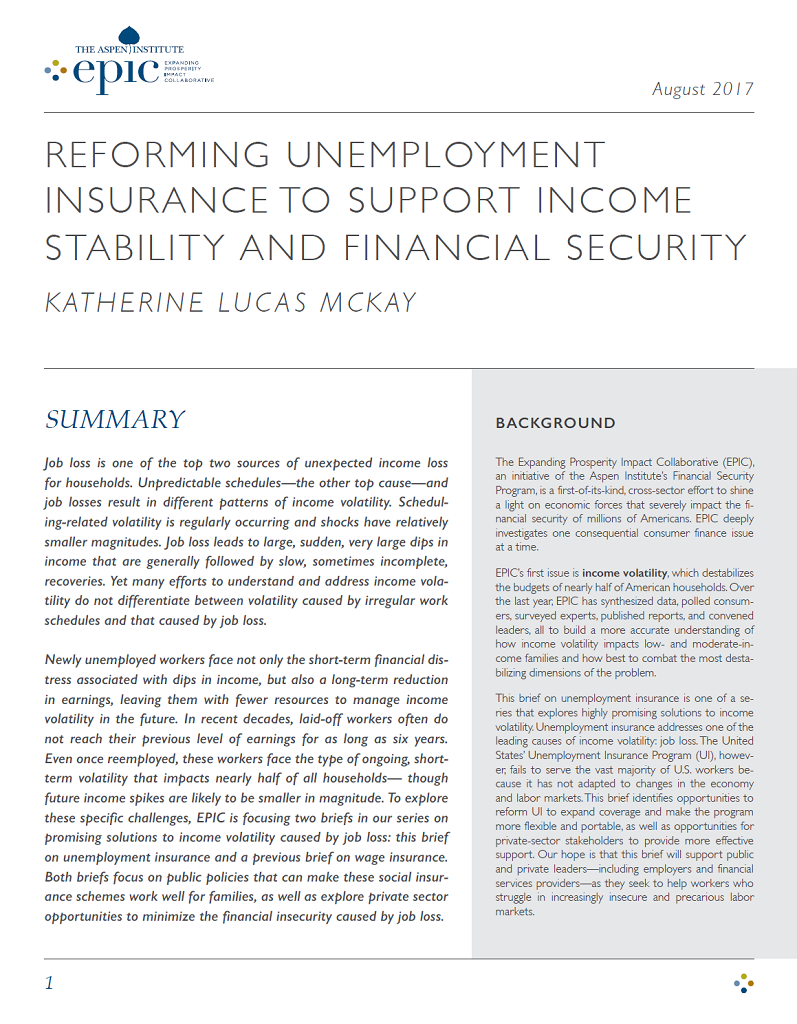Job loss is one of the top two sources of unexpected income loss for households. Unpredictable schedules—the other top cause—and job losses result in different patterns of income volatility. Scheduling- related volatility is regularly occurring and shocks have relatively smaller magnitudes. Job loss leads to large, sudden, very large dips in income that are generally followed by slow, sometimes incomplete, recoveries. Yet many efforts to understand and address income volatility do not differentiate between volatility caused by irregular work schedules and that caused by job loss.
Newly unemployed workers face not only the short-term financial distress associated with dips in income, but also a long-term reduction in earnings, leaving them with fewer resources to manage income volatility in the future. In recent decades, laid-off workers often do not reach their previous level of earnings for as long as six years. Even once reemployed, these workers face the type of ongoing, short term volatility that impacts nearly half of all households— though future income spikes are likely to be smaller in magnitude. To explore these specific challenges, EPIC is focusing two briefs in our series on promising solutions to income volatility caused by job loss: this brief on unemployment insurance and a previous brief on wage insurance. Both briefs focus on public policies that can make these social insurance schemes work well for families, as well as explore private sector opportunities to minimize the financial insecurity caused by job loss.
This brief reviews the current research on how income shocks associated with job displacement impact families’ financial security in the short- and long-term. It discusses the performance of current UI programs and a range of reform proposals. The brief also explores specific reforms that would enable UI programs to serve a broader base of workers and buffer more effectively against employment-related negative income shocks. It also considers the roles of key institutions – governments, employers, and financial services providers including insurers—in supporting UI reforms, and identifies specific opportunities for private-sector leadership.


